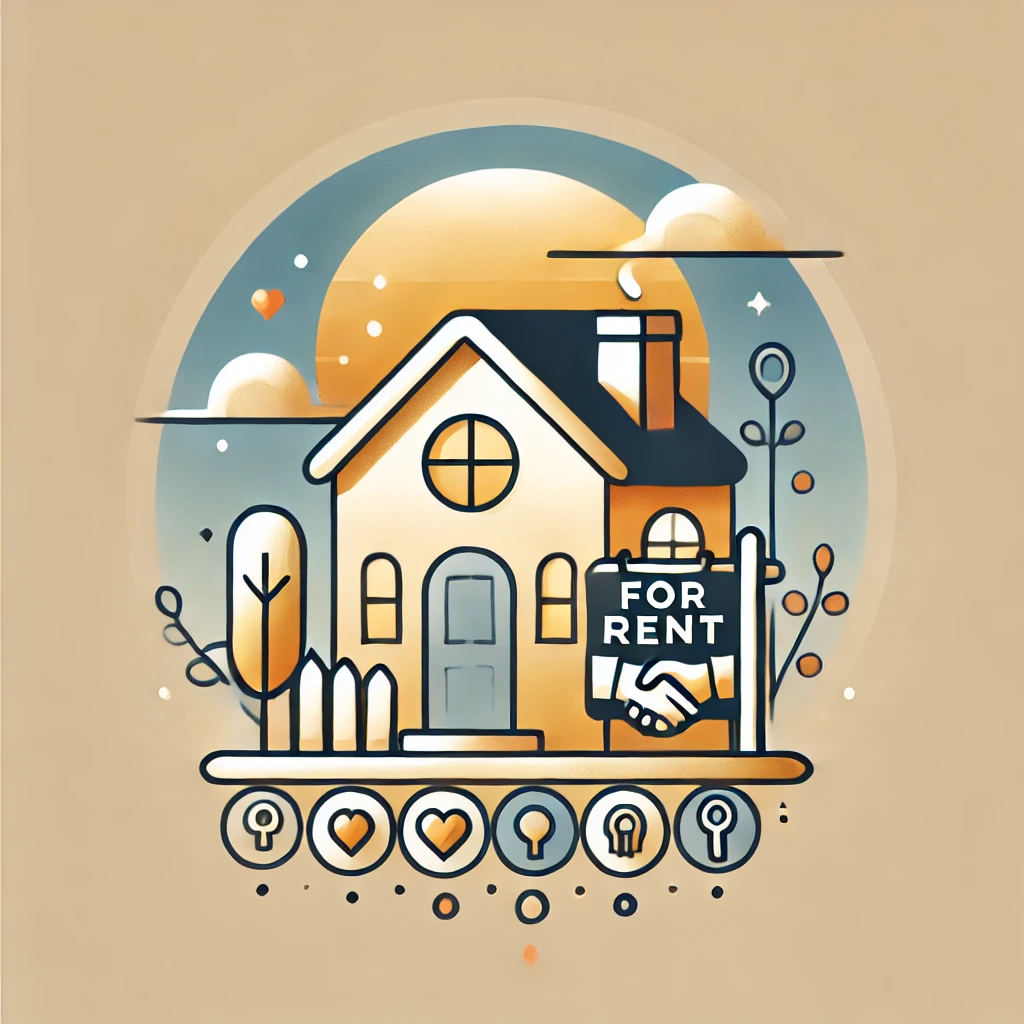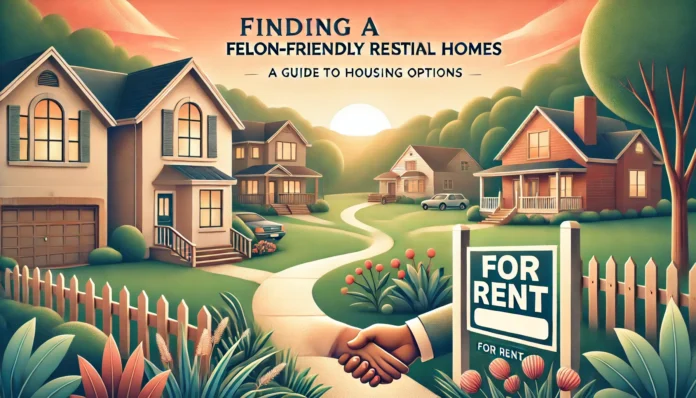The secure housing journey for individuals addicted to crime is a landmark progress assignment. To the regret of the industry, the renting of a house can be a daunting task due to rental restrictions as well as the societal stigma. Nonetheless, the choice of felon-friendly rental homes is a sign of hope and a good chance to make a new life for oneself. This guide explains the way to look for this kind of house and avoid problems on the way to a possible house.
Understanding Felon-Friendly Rental Homes
Felon-friendly rental homes are places of the premises where the owners are free to rent to those who have a criminal record. These premises signify the fact that the overall society gives a second chance and landlords have houses like private ones usually that are parts of organizations or they belong to the housing programs and are really in favor of the offenders who have obstacles in their past.
Challenges in Finding Housing
A lot of the rental properties are carrying out a background check and they may reject people with felonies. Such a thing may result in their being apart from the stunted emotion of not having gained what they had expected. Some of the hard elements common to such problems are as follows:
- Background Checks: A majority of the landlords are used to conducting the criminal history check and therefore, you might find it difficult to pass to the next stage and be disqualified immediately.
- Housing Discrimination: Not only landlords, they may also require that you have no police record at all to select you as a tenant.
- Limited Availability: Some houses can be felon-friendly that are nearly never advertised for people to find in time.

Also Read: Face Swap Technology: Revolutionizing the Digital World
Tips for Finding Felon-Friendly Rentals
Search online platforms and contact private landlords for flexibility, leverage nonprofits for assistance, be transparent about your history, and strengthen your application with positive references or a co-signer.
Search Online Resources
Rentals and properties of individual people, as well as real estate agencies and websites like Craigslist, Facebook Marketplace, there are listings of rental homes coupled with the feature of communicating with the property owner directly. Some websites offer help specifically to people with a criminal record.
Focus on Private Landlords
The major difference between private and public housing management companies is more freedom of the landlord to set rules and requirements as he wishes. The right step in communicating directly with landlords is that you can explain your background and thus gain trust.
Leverage Supportive Organizations
The job of non-profit organizations and reentry programs is to support ex-offenders in leasing homes. Organizations like the Salvation Army, HUD’s Second Chance programs and community services, to mention a few.
Be Transparent
By telling the truth about your past very openly you increase your chances. Landlords would be more impressed if you tell them the whole story, as honesty breeds trust, which is key. Also, tell them how you changed your life around, and it might mean something to them.
Improve Your Rental Application
With the prompt for steady employment, credible references, and documented completion of rehab programs or certificates, you should be able to persistently adhere to the positive side of the issue you present.
Consider Co-Signing Options
If a family member or a friend signs along, this helps alleviate any doubt the landlord may have about your applicant cover sheet.
Government Assistance and Housing Programs

Housing assistance is another method whereby individuals find a place to live. The federal government’s biggest success on the issue of housing is HUD (Housing and Urban Development) programs as part of the Housing Management Program, which provides housing vouchers and access to subsidized apartments. Additionally, HUD often includes initiatives that help individuals locate felon-friendly rental homes, offering tailored solutions for those struggling with housing.
Overcoming Housing Discrimination
The Fair Housing Act lays down the rights of tenants. It doesn’t mention anything about criminal history explicitly. Nonetheless, some states and cities have erected a “Ban the Box” statute or housing reform aiming at cutting down discrimination against those with criminal records. Knowing your rights can make you confident during the renting negotiating process.
Building a Stable Future
Looking for a felon tolerant house for rent is not only a matter of finding a roof to stay under—it is a way to renew your life. A regular home could act as a base that you need to be able to pursue jobs, education, and personal fulfillment.
Final Thoughts
Looking for felon-friendly rental homes may present some difficulties, but resources and tactics are available to help you find appropriate housing. By reaching out to non-profit entities, having honest communication, and exploring different rental options for greater flexibility, you can overcome challenges and build a stable future.


